
Find Help
More Items From Ergsy search
-

Understanding Your Rights During Divorce Proceedings in the UK
Relevance: 100%
-

Understanding Your Rights in Divorce Proceedings
Relevance: 99%
-

I'm Getting a Divorce | Tips From a Divorce Lawyer
Relevance: 64%
-

NO FAULT DIVORCE (What is there to know)
Relevance: 57%
-
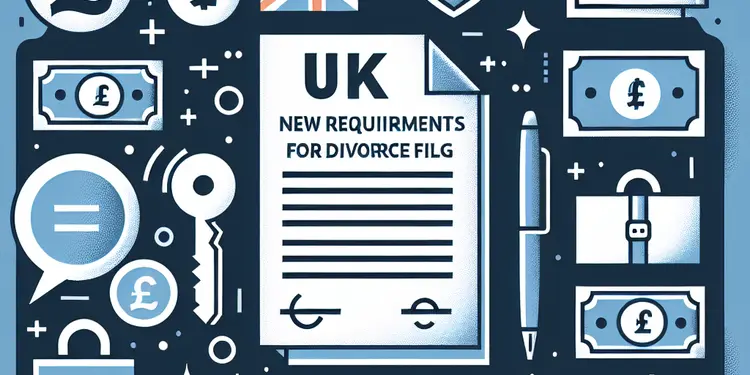
Are there any new requirements for divorce filings in 2026?
Relevance: 56%
-

Divorce UK (England and Wales) | UK Divorce Process and Overview Explained PART 1 | BlackBeltBarrister
Relevance: 56%
-

A Guide to the Divorce Process
Relevance: 55%
-
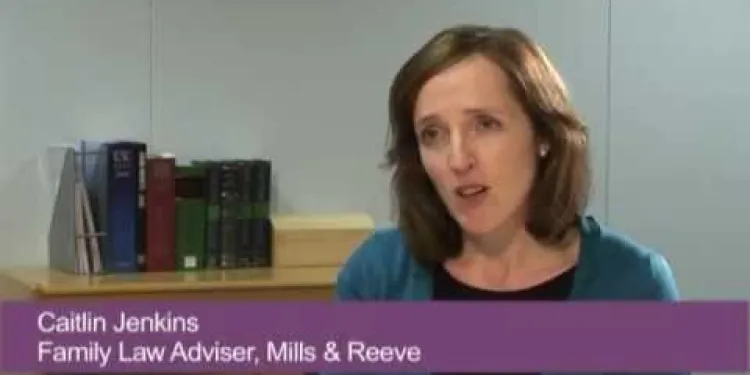
Divorce UK: What happens with the money in a divorce?
Relevance: 53%
-
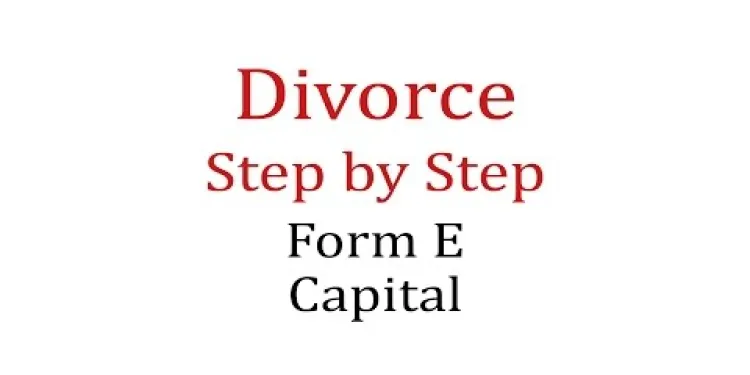
Divorce Step By Step - Form E - Capital
Relevance: 53%
-

Ultimate Guide to Financial Disclosure on Divorce in the UK
Relevance: 51%
-

The 4 Steps to Agree a Financial Settlement on Divorce UK
Relevance: 49%
-

Can firefighter pension benefits be divided in a divorce?
Relevance: 48%
-
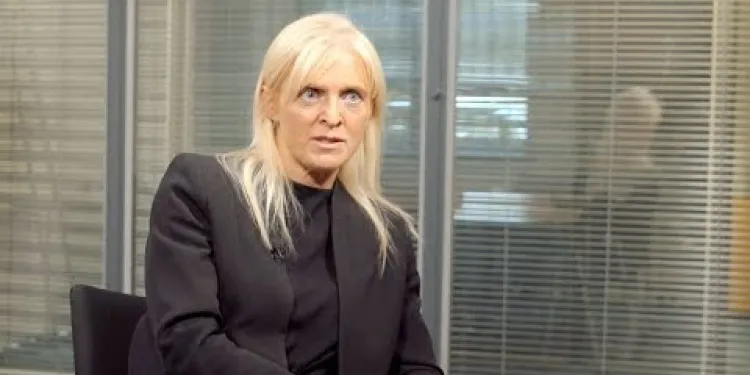
Child Care Proceedings | Family Law
Relevance: 46%
-

Divorce - How To Rebuild Your Life After Losing Everything
Relevance: 43%
-

Can the Attorney General in the UK intervene in legal proceedings?
Relevance: 41%
-

Have the rights of same-sex couples been affected by the 2026 family court changes?
Relevance: 41%
-

Can I represent myself in tribunal proceedings?
Relevance: 37%
-

Navigating Changes in Family Law Post-Brexit
Relevance: 34%
-

What is classed as the proceeds of crime?
Relevance: 33%
-

Pension rights for Firefighters in the UK
Relevance: 33%
-

Are there any exceptions to my right to access my medical records?
Relevance: 33%
-
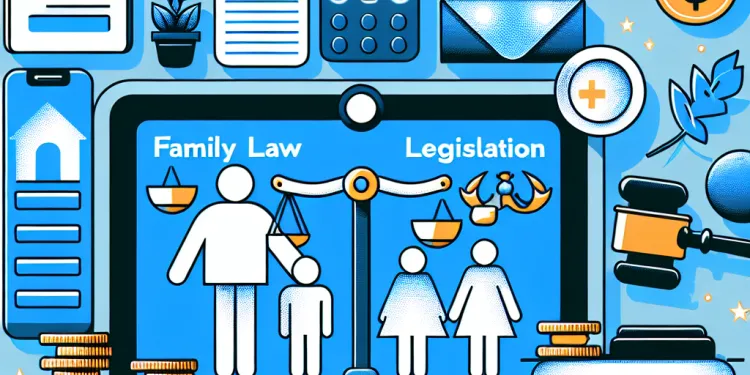
Impacts of Recent Changes to Family Law Legislation
Relevance: 33%
-
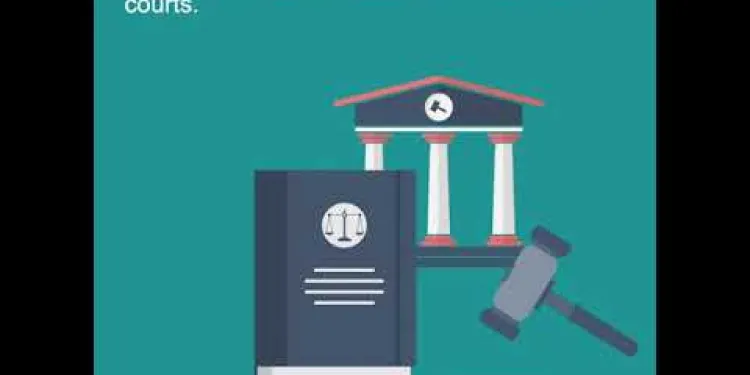
The Human Rights Act
Relevance: 32%
-

Is the Attorney General involved in human rights issues?
Relevance: 31%
-

What legal rights do I have as a medical patient in the EU?
Relevance: 31%
-

Have any changes been made regarding the enforcement of visitation rights?
Relevance: 30%
-

Navigating Child Custody and Visitation Rights in Modern UK
Relevance: 30%
-

Do I have a right to see other people's police records?
Relevance: 30%
-

Do I have a right to see my police records?
Relevance: 30%
-

How can shareholders enforce their rights?
Relevance: 30%
-

What is the impact of the 2026 changes on grandparent visitation rights?
Relevance: 29%
-
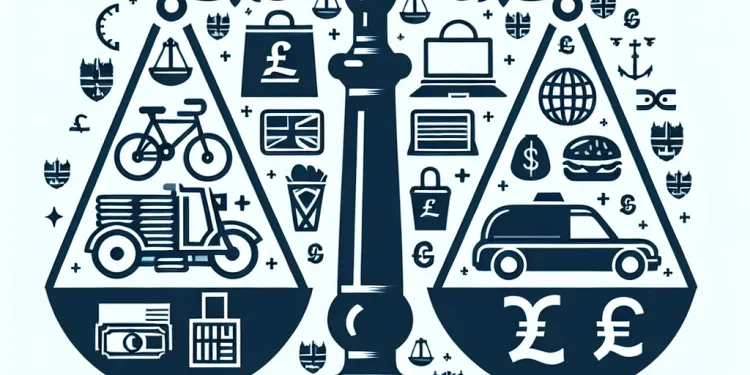
What are my rights as a Gig Worker?
Relevance: 29%
-

How are parental rights addressed differently in the 2026 family court updates?
Relevance: 28%
-

The Family Court without a Lawyer
Relevance: 28%
-

Does the right to access my medical records apply to minors?
Relevance: 28%
-

Do I have a right to see my medical records?
Relevance: 27%
-

Do gig workers have the right to unionize?
Relevance: 27%
-

What rights do residents have in a care home?
Relevance: 27%
-

Is job security a right for gig workers?
Relevance: 26%
-

How do clinics determine if IVF is the right option?
Relevance: 26%
Understanding Your Rights During Divorce Proceedings in the UK
Introduction
Divorce can be a daunting process, compounded by the legal intricacies involved. Understanding your rights during divorce proceedings in the United Kingdom is paramount to ensure a fair and just settlement. This guide provides a comprehensive overview to help you navigate through this challenging time.
Legal Grounds for Divorce
In the UK, a marriage can only be ended if it has irretrievably broken down. The legal grounds for divorce are adultery, unreasonable behaviour, desertion for at least two years, two years of separation with consent, and five years of separation without consent. Understanding these grounds is crucial for filing your petition correctly.
Financial Settlements
A major aspect of divorce proceedings involves financial settlements. The court considers various factors such as income, financial needs, and the standard of living during the marriage. Both parties are required to provide full and frank disclosure of their financial positions. Working with a solicitor can help ensure a fair distribution of assets, including property, savings, and pensions.
Child Custody and Support
Child custody arrangements are another critical component. The court prioritises the best interests of the children. Parents are encouraged to reach an amicable agreement regarding living arrangements and visitation rights. Child support is typically calculated based on the non-residential parent's income, ensuring the child's welfare is adequately maintained.
Legal Aid and Representation
Depending on your financial situation, you might be eligible for legal aid, assisting with legal costs. It's advisable to seek professional legal representation to navigate the complexities of divorce laws effectively. Many solicitors offer initial consultations, which can be invaluable in understanding your rights and options.
Mediation and Alternative Dispute Resolution
Mediation is often recommended to resolve disputes amicably without the need for court intervention. A neutral mediator helps both parties reach mutually acceptable agreements, which can be less stressful and more cost-effective than a court battle.
Conclusion
Knowing your rights during divorce proceedings in the UK is essential to protect your interests and ensure a fair outcome. Legal advice, understanding the grounds for divorce, financial settlements, child custody, and considering mediation can all play crucial roles in this process. If you're facing a divorce, it's highly recommended to seek professional legal guidance to navigate the complexities effectively.
Understanding Your Rights During Divorce Proceedings in the UK
Introduction
Divorce can be a hard time. There are lots of rules to understand. Knowing your rights in the UK is important. This guide will help you understand what to do during a divorce.
Legal Grounds for Divorce
You can only get a divorce in the UK if your marriage has really broken down. This means one of these must have happened: one partner cheated (adultery), one partner was very mean or unfair (unreasonable behaviour), one partner left for at least two years (desertion), both partners have lived apart for two years and both agree to divorce, or they have lived apart for five years if one does not agree. Knowing these reasons will help you start a divorce in the right way.
Financial Settlements
Money is important in a divorce. The court looks at things like how much money each person makes and needs, and how they lived when married. Both people must show all their money details. A solicitor can help make sure money and things like houses and pensions are shared fairly.
Child Custody and Support
Deciding who looks after children is very important. The court cares most about what is best for the kids. Parents should try to agree on where the kids live and when they see each parent. Child support is money to help look after children. It is usually based on the income of the parent the children do not live with.
Legal Aid and Representation
If you do not have much money, you might get legal aid to help pay for legal costs. It is a good idea to get professional legal help to understand the divorce process. Many lawyers give a first meeting for free, which can help you know your options and rights.
Mediation and Alternative Dispute Resolution
Mediation can help you agree on things without going to court. A neutral person, called a mediator, helps both sides agree. This can be less stressful and cost less than going to court.
Conclusion
Knowing your rights in a UK divorce can help protect you and make sure things are fair. Legal advice, understanding reasons for divorce, money matters, child custody, and using mediation are all helpful. If you are getting a divorce, it is very wise to get professional legal help to guide you.
Frequently Asked Questions
What are my options if my spouse does not agree to the divorce?
In the UK, if your spouse does not agree to the divorce, you can still proceed by proving one of the 'five facts' of irretrievable breakdown of the marriage. These include adultery, unreasonable behaviour, desertion, two years' separation with consent, or five years' separation without consent.
How long does the divorce process take in the UK?
The duration of the divorce process can vary. Typically, it takes four to six months from filing the divorce petition to the final decree absolute. However, complications such as disputes over finances or children can lengthen this process.
What is the difference between a Decree Nisi and a Decree Absolute?
A Decree Nisi is a provisional court order stating that the court sees no reason why you can't divorce. This comes first. The Decree Absolute is the final legal document that officially ends the marriage.
Can I get financial support from my spouse during or after the divorce?
Yes, you may be entitled to financial support, known as spousal maintenance or alimony. This depends on factors such as the length of the marriage, your individual incomes and needs, and contributions to the marriage.
What happens to the family home during a divorce?
The fate of the family home depends on various factors like who will care for any children, financial contributions, and needs of both parties. The court aims to ensure fair accommodation for both parties, especially where children are involved.
How are assets divided in a UK divorce?
In the UK, assets are usually divided based on fairness, which may not always mean an equal split. The court considers factors such as the length of the marriage, contributions (financial and non-financial), and the welfare of any children.
Do I need a solicitor to get a divorce in the UK?
While you aren't legally required to have a solicitor for a divorce, it is highly advisable to seek legal advice, especially in cases involving disputes over children, property, or financial arrangements.
Can I change my name back to my maiden name after the divorce?
Yes, you can change your name back to your maiden name. You may need your birth certificate, marriage certificate, and the decree absolute to do so officially with banks, passport office, etc.
Will I need to go to court for my divorce?
Many divorces in the UK do not require a court appearance if both parties agree on all terms. However, if there are disputes over finances, property, or children, a court hearing might be necessary.
How does a prenuptial agreement affect divorce proceedings?
A prenuptial agreement can be considered by the court when dividing assets, but it is not legally binding in the UK. It will be taken into account as long as it's fair and both parties entered into it willingly and with full understanding.
What are my rights regarding child custody?
Both parents have equal rights to apply for custody. The court's primary concern is the child's welfare, aiming for an arrangement in the child's best interest, which could be joint custody or primary custody with one parent.
What happens if my spouse and I can't agree on financial arrangements?
If you and your spouse cannot agree on financial arrangements, the court can make an order. This will typically involve a detailed examination of both parties' finances to ensure a fair division.
Will my pension be affected by the divorce?
Pensions are considered a marital asset and can be divided as part of the financial settlement. This can include pension sharing, pension offsetting, or earmarking part of the pension for the other party.
What is a Clean Break Order?
A Clean Break Order is a court order that aims to financially separate the divorcing parties completely, preventing any future financial claims against each other. This is common when both parties can be financially independent post-divorce.
Can I remarry immediately after my divorce is finalised?
Yes, once your divorce is finalised with the Decree Absolute, you are legally free to remarry. Ensure you have all the official documentation as proof of your divorce before planning a new marriage.
What can I do if my husband or wife says no to divorce?
If your husband or wife does not agree to divorce, here are some things you can do:
- Talk to them: Try to talk calmly and explain why you want a divorce.
- Get help from a family counselor: A counselor can help you both talk about your problems.
- Legal advice: Talk to a lawyer about what you can do next.
You can also find support tools online to help you. These tools can give you advice and information. Remember, you are not alone and there are people who can help you.
In the UK, if your husband or wife does not agree to the divorce, you can still get a divorce. You need to show the marriage has broken down. You can do this in one of five ways: if your partner cheated, behaved badly, left you, if you have lived apart for two years and they agree, or lived apart for five years and they do not agree.
How long does it take to get a divorce in the UK?
Getting a divorce means ending a marriage. In the UK, this can take a few months.
Here are some tips to help:
- Use a calendar to track important dates.
- Ask someone you trust to help you understand the steps.
- Talk to a lawyer if you have questions.
Getting a divorce can take some time. It usually takes about four to six months from starting the process to finishing. But, if there are problems like arguments about money or children, it might take longer.
If you find it hard to read this, you can try using tools that read text out loud. You can also ask someone you trust to help you understand. Remember, it's okay to take your time!
What is the difference between a Decree Nisi and a Decree Absolute?
When people get a divorce, they must go through two steps. The first step is called a Decree Nisi, and the second step is called a Decree Absolute.
A Decree Nisi means the court agrees you can get a divorce, but it is not final yet. You must wait a bit longer.
A Decree Absolute means the divorce is final. You are no longer married to your partner.
If you find understanding hard, you can ask someone for help. You can also use pictures or read the sentences out loud to make it easier.
A Decree Nisi is an important paper from the court. It says the court does not see a reason to stop your divorce. This paper comes first. The Decree Absolute is the last paper you need. It means your marriage is officially over.
Can my husband or wife give me money during or after the divorce?
If you and your partner are getting a divorce, you might need some money help. Your husband or wife might be able to give you money while you are still married or after you are divorced.
Here are some things you can do:
- Talk to your husband or wife. Tell them what you need.
- You might be able to get money from them. This is called "spousal support" or "alimony."
- You can ask a lawyer for help. They can tell you what you can do.
- A judge might decide if you should get money and how much.
If you need extra help, try using tools like:
- Having a friend or family member read it with you.
- Using simple math to figure out your money needs.
Yes, you might get money support. This is called spousal maintenance or alimony. Whether you get this money depends on a few things. These things include:
- How long you were married.
- How much money each person earns.
- What each person needs.
- What each person did for the marriage.
Here are some things that might help you:
- Using speech-to-text tools if reading is hard.
- Talking to someone who can explain it to you step by step.
- Using apps that read text out loud.
What happens to the family home if parents split up?
If parents are splitting up, what happens to the family house can be different.
Here are some things that might happen:
- One parent might stay in the house with the children.
- Both parents might decide to sell the house and share the money.
- They might rent the house to someone else and share the rent money.
- Sometimes, one parent buys the other parent's share of the house.
It is a good idea for parents to talk to someone who knows about these things. This could be a lawyer or a helper. They can help to make good plans.
The future of the family home depends on different things. These include who will look after the children, who has paid for the home, and what both people need.
The court wants to make sure both people have a fair place to live, especially when there are children.
You can use tools like text-to-speech apps to help read this text.
What happens to things you own in a UK divorce?
When two people get a divorce, they split their things. This means deciding who gets what. Here is how it works in the UK:
- Talk and agree: The couple can talk and decide together how to share their things.
- Ask a mediator: If they can't agree, a helper called a mediator can help them talk and find a fair way.
- Go to court: If they still can't decide, a judge in court will choose how to divide the things.
Things to help you:
- Use a friend or family member to help you talk and understand.
- Draw or write a list of the things you own together.
- You can ask a lawyer for advice.
In the UK, when you split up, what you own is shared out in a way that is fair. This doesn't always mean everyone gets the same amount. The judge looks at:
- How long you were married.
- What each person gave, like money or looking after the home.
- What is best for any children.
Do I need a solicitor to get a divorce in the UK?
Do I need a lawyer to get a divorce in the UK?
No, you do not have to have a lawyer to get a divorce.
But, a lawyer can help you. They can explain the law and make sure everything is done right.
If you want to save money, you can try doing it yourself. This is called "Do It Yourself" divorce.
There are online guides that can help.
You can ask family or friends for support, or talk to a group that helps people get divorced.
You don’t have to get a lawyer if you’re getting a divorce, but it’s a good idea. A lawyer can help you, especially if there are disagreements about kids, homes, or money.
Can I get my old name back after divorce?
If you want your old name back after a divorce, you usually can. Ask the court or a lawyer for help. You might need some papers like your birth certificate. Tools like a dictionary can help you with the words. Talking to someone you trust about it can also help.
Yes, you can change your name back to your old name before you got married. You might need some important papers like your birth certificate, marriage certificate, and the paper that says your divorce is final. These are needed to change your name with the bank, for your passport, and other places.
Do I have to go to court for my divorce?
Getting a divorce means ending a marriage.
Sometimes, people need to visit a court to end their marriage. But not always!
If you and your partner agree on everything, you might not need to go.
If you do not agree or have children, a court visit might be needed.
For help, you can talk to a lawyer or use a mediator. A mediator helps people agree.
This can make things easier for everyone.
In the UK, you do not have to go to court for many divorces if you both agree on everything. But if you disagree about money, your home, or your children, you might need to go to court.
What is a prenup and how does it affect getting a divorce?
A prenup is a deal couples make before they get married. It says who gets what if they divorce.
When a couple divorces with a prenup, it can help make things simpler. The prenup can help decide how to share money and things.
Sometimes, a prenup can stop fights, saving time and money in court.
For more help, you can talk to someone who knows about prenups or use guides to understand better.
A prenuptial agreement is a document that says how things should be shared if a couple breaks up. In the UK, the court can look at this agreement when deciding how to divide things, like money and property. But it doesn't have to follow it exactly.
The court will look at the prenuptial agreement if it seems fair. Both people need to have agreed to it because they wanted to and they understood what it meant.
If you need help understanding this, you can ask a grown-up or a friend. You can also use tools like read-aloud apps that can help read the text to you.
What are my rights about child custody?
If you are a parent, you have rights about who takes care of your child. Here are some simple points:
- You have the right to see your child.
- You can ask to spend time with your child.
- You can talk to a judge if you need help with custody.
- Both parents usually share custody.
If you find it hard to understand, you can:
- Ask someone to explain it to you.
- Use pictures to help you understand.
- Get help from a family law expert.
Both parents can ask for custody of their child. The court wants to make sure the child is safe and happy. They decide what is best for the child. Sometimes this means both parents share custody, and sometimes it means one parent has more custody.
What if my partner and I can't agree on money things?
If you and your partner can't agree about money, you can try these things: - **Talk it out:** Sit down together and try to talk about what each of you wants and needs. - **Get help:** Ask a friend, family member, or a helper to talk with you both. - **Write it down:** Make a list of the things you both agree on and the things you don't. - **Use a calculator:** This tool can help you figure out how to share money fairly. - **Look for advice:** Some people, called mediators, can help you make money decisions. These steps can help you and your partner find a middle ground.If you and your partner can't decide about money, the court can help. The court will look at everyone's money to divide it fairly.
Will my retirement money change if I get a divorce?
Pensions are like money saved for when you stop working. If you are married and decide to separate, you might have to share this money. You can split the pension money in different ways. You can share it, swap it with other money or things, or save a part of it for your partner.
What is a Clean Break Order?
A Clean Break Order is a legal agreement. It is used when people get divorced. This agreement says that the couple does not have to share money or things anymore. They both move on separately.
If you find reading hard, you can:
- Ask someone to read it with you.
- Use pictures to help understand.
- Take your time and read slowly.
A Clean Break Order is a decision made by a court. It helps two people who are getting divorced to keep their money separate. This means neither person can ask the other for money in the future. This is often used when both people can take care of themselves after the divorce.
Reading tools like audiobooks or text-to-speech apps can help you understand the information better. You can also ask someone to explain it to you in simple words.
Can I get married again right after my divorce is finished?
After your divorce is completely done, you might want to get married again. It's important to know if you can do this right away.
Here's what you can do:
- Check the rules where you live. Sometimes there are rules about waiting before you can marry again.
- Ask a grown-up or lawyer for advice if you're unsure. They can help explain what you need to do.
- Use a calendar or ask someone to help you keep track of the dates.
This can help you understand what you need to know about getting married again.
Yes, after your divorce is completely done, you can get married again. Make sure you have the papers that prove you are divorced before you start planning your new wedding.
Useful Links
This website offers general information and is not a substitute for professional advice.
Always seek guidance from qualified professionals.
If you have any medical concerns or need urgent help, contact a healthcare professional or emergency services immediately.
Some of this content was generated with AI assistance. We’ve done our best to keep it accurate, helpful, and human-friendly.
- Ergsy carfully checks the information in the videos we provide here.
- Videos shown by Youtube after a video has completed, have NOT been reviewed by ERGSY.
- To view, click the arrow in centre of video.
- Most of the videos you find here will have subtitles and/or closed captions available.
- You may need to turn these on, and choose your preferred language.
- Go to the video you'd like to watch.
- If closed captions (CC) are available, settings will be visible on the bottom right of the video player.
- To turn on Captions, click settings .
- To turn off Captions, click settings again.
More Items From Ergsy search
-

Understanding Your Rights During Divorce Proceedings in the UK
Relevance: 100%
-

Understanding Your Rights in Divorce Proceedings
Relevance: 99%
-

I'm Getting a Divorce | Tips From a Divorce Lawyer
Relevance: 64%
-

NO FAULT DIVORCE (What is there to know)
Relevance: 57%
-

Are there any new requirements for divorce filings in 2026?
Relevance: 56%
-

Divorce UK (England and Wales) | UK Divorce Process and Overview Explained PART 1 | BlackBeltBarrister
Relevance: 56%
-

A Guide to the Divorce Process
Relevance: 55%
-

Divorce UK: What happens with the money in a divorce?
Relevance: 53%
-

Divorce Step By Step - Form E - Capital
Relevance: 53%
-

Ultimate Guide to Financial Disclosure on Divorce in the UK
Relevance: 51%
-

The 4 Steps to Agree a Financial Settlement on Divorce UK
Relevance: 49%
-

Can firefighter pension benefits be divided in a divorce?
Relevance: 48%
-

Child Care Proceedings | Family Law
Relevance: 46%
-

Divorce - How To Rebuild Your Life After Losing Everything
Relevance: 43%
-

Can the Attorney General in the UK intervene in legal proceedings?
Relevance: 41%
-

Have the rights of same-sex couples been affected by the 2026 family court changes?
Relevance: 41%
-

Can I represent myself in tribunal proceedings?
Relevance: 37%
-

Navigating Changes in Family Law Post-Brexit
Relevance: 34%
-

What is classed as the proceeds of crime?
Relevance: 33%
-

Pension rights for Firefighters in the UK
Relevance: 33%
-

Are there any exceptions to my right to access my medical records?
Relevance: 33%
-

Impacts of Recent Changes to Family Law Legislation
Relevance: 33%
-

The Human Rights Act
Relevance: 32%
-

Is the Attorney General involved in human rights issues?
Relevance: 31%
-

What legal rights do I have as a medical patient in the EU?
Relevance: 31%
-

Have any changes been made regarding the enforcement of visitation rights?
Relevance: 30%
-

Navigating Child Custody and Visitation Rights in Modern UK
Relevance: 30%
-

Do I have a right to see other people's police records?
Relevance: 30%
-

Do I have a right to see my police records?
Relevance: 30%
-

How can shareholders enforce their rights?
Relevance: 30%
-

What is the impact of the 2026 changes on grandparent visitation rights?
Relevance: 29%
-

What are my rights as a Gig Worker?
Relevance: 29%
-

How are parental rights addressed differently in the 2026 family court updates?
Relevance: 28%
-

The Family Court without a Lawyer
Relevance: 28%
-

Does the right to access my medical records apply to minors?
Relevance: 28%
-

Do I have a right to see my medical records?
Relevance: 27%
-

Do gig workers have the right to unionize?
Relevance: 27%
-

What rights do residents have in a care home?
Relevance: 27%
-

Is job security a right for gig workers?
Relevance: 26%
-

How do clinics determine if IVF is the right option?
Relevance: 26%


